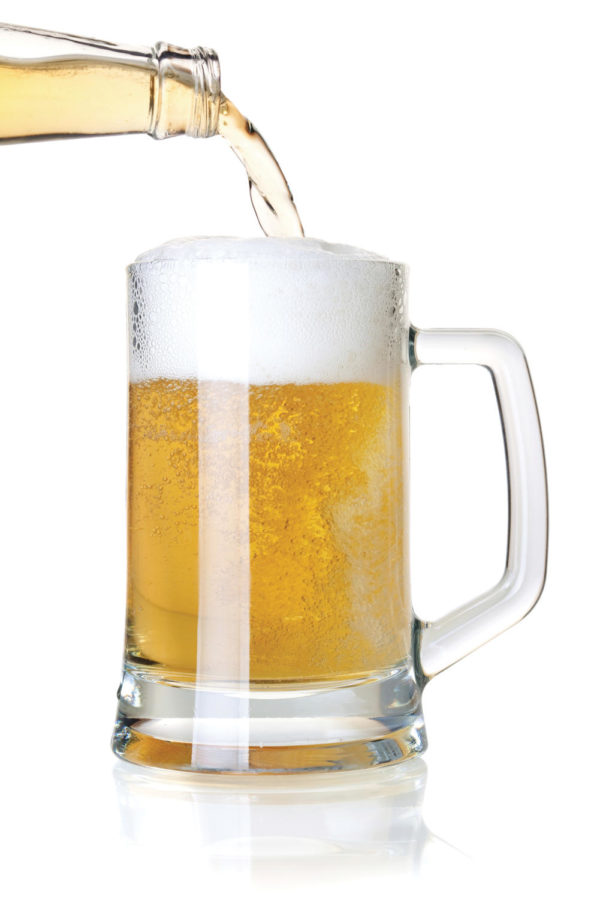Intoxicating implications of an OWI
March 7, 2012
Heading into spring break, many students will be enjoying a week of leisure and fun with friends. The activities of some though, may leave them with more consequences than memories.
For readers of the police blotter, the names listed may only stick for a few minutes before leaving the memory. However, for those names listed in the blotter, the memory is there to stay whether it is wanted or not.
The individuals in the blotter have had probation violations, fender benders, stolen items, public intoxication, possession of alcohol and, along with those, operating while intoxicated, also known as an OWI.
According to the the Iowa Department of Transportation’s website it is unlawful to operate a motor vehicle in Iowa while:
• under the influence of alcoholic beverages or other drug combination of such substances.
• having an alcohol concentration of .08 or more.
• having any amount of a controlled substance in one’s body.
Iowa DOT also states that if one violates the state regulations, they are “to have a blood, breath and/or urine test performed to determine alcohol level or presence of drug, whenever a peace officer has reasonable grounds to believe the person is operating under the influence.”
The jail time, losing their license and fines are some of the costly consequences drivers may receive.
While in college, students are enrolled to receive degrees. However, it is also the norm for some students to go out on Welch Avenue or to house parties over the weekend.
Kathy Wieland, director of Career Services for the College of Business, gives advice to students who have offenses on their record.
“Employers do background searches,” she said. “It’s really the norm now.”
If a student’s record is not clean, though, it should not be discouraging to apply for a job he or she may want.
“Employers are looking for the students to reveal the information,” Wieland said.
The issue of student records of alcohol offenses has been an ongoing battle.
“Organizations are concerned with this issue, it is being consistently researched,” she said.
The judgment one makes to get behind the wheel is one that will most likely stick with them for years.
“Students need to be aware of the choices they make,” she said, “especially during their first and second year as students. It can affect them their junior and especially senior year when they’re looking for jobs.”
Departments such as teacher education conduct background checks on many areas. On the form, citing if there has been a conviction of a crime other than speeding or a parking violation is asked.
Operating while intoxicated is not the only offense students could face. Public intoxication is another offense, and students under the age of 21 can receive possession of alcohol under the legal age, also referred to as a PAULA.
“The judge determines the fine for public intoxication,” said Brad Baker, community resource officer for the Ames Police Department. “The unofficial standard in Story County is $200, but with court costs and all that, the total would be around $330.”
After receiving a public intoxication, the individual stays at the Story County Jail until further notice.
The OWI range can be a lot steeper, due to the offense, “but the fine range for a first offence can be $300 to $1,875 plus costs,” Baker said.
Also, a PAULA can be expunged from records.
According to the Code of Iowa 123.47 (7), “Upon the expiration of two years following conviction for a violation of subsection 2 or of a similar local ordinance, a person may petition the court to expunge the conviction, and if the person has had no other criminal convictions, other than local traffic violations or simple misdemeanor violations of chapter 321 during the two-year period, the conviction shall be expunged as a matter of law.”
The same can be done for those who face public intoxication charges.
According to the Code of Iowa 123.46 (5), “Upon the expiration of two years following conviction for a violation of this section, a person may petition the court to exonerate the person of the conviction, and if the person has had no other criminal convictions, other than simple misdemeanor violations of chapter 321 during the two-year period, the person shall be deemed exonerated of the offense as a matter of law.”
Although the possibility of erasing a PAULA or public intoxication is available, it is not the same for an OWI.
Karen Ballard, assistant record manager for the Office of Driver Services, said the records of those with OWIs do not get erased for a while.
“The OWI is set regardless if you have no other violations,” she said, “for a non-commercial driver it will stay on your record for 12 years, at the earliest.”
The OWI does not magically disappear after 12 years, however.
“It depends whether or not you take care of the requirements given to you from the OWI,” Ballard said.







